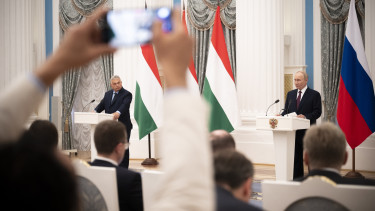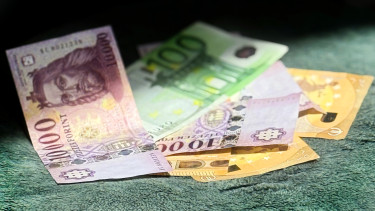Economy
Croatia wants to adopt euro within 7-8 years - Prime Minister
He told the strategic forum organised jointly with the Croatian National Bank (HNB) that he does not wish to make guesses about the entry date, but the country intends to enter the European Exchange Rate Mechanism II (ERM-2), i.e. the anteroom for euro adoption, within the next three years, before the country takes the presidency of the European Union in 2020.
"We don't want to specify the exact dates, but we want Croatia to become a euro zone member within two government terms in office"
(which would be within the next seven to eight years), Plenkovic said.
Croatia's major challenge before adopting the euro is expected to be the reduction of public debt which is slightly above 80% of gross domestic product, Reuters reported.
"Our goal is to reduce the public debt to 72% of GDP by 2020 ... We are undertaking a major fiscal consolidation and this year the budget gap will be even lower than last year's 0.9% of GDP," Plenkovic said.
Central bank Governor Boris Vujcic said meeting the necessary criteria would not be a problem, adding that several structural reforms are still needed to be put in place.
He said Croatia was the most "euroised" EU country of those that had not yet adopted the euro.
"Some 75% of local deposits and 67% of local debt is denominated in the euro. Some 60% of Croatia's trade exchange is related to the euro zone, while 70% of tourism receipts comes from the euro zone countries," Reuters cited Vujcic as telling the conference.
He went on listing the benefits and disadvantages of being member of the Eurozone. The most important benefits of euro adoption would be the removal of currency risk, lower interest rates, lower interest and transaction costs, and it would also incentivise international trade and investments, he said. Among the disadvantages he mentioned the loss of sovereign monetary policy, a risk of price increases, the costs of switching to the euro and entering ERM-2.
Croatia took an obligation to adopt the euro when it joined the EU in 2013, but without a defined timetable.
(Front page photo by Shutterstock)
It is not true that we will introduce European prices while maintaining Croatian salaries; we will disperse such myths
, he stressed."We don't want to specify the exact dates, but we want Croatia to become a euro zone member within two government terms in office"
(which would be within the next seven to eight years), Plenkovic said.
Croatia's major challenge before adopting the euro is expected to be the reduction of public debt which is slightly above 80% of gross domestic product, Reuters reported.
"Our goal is to reduce the public debt to 72% of GDP by 2020 ... We are undertaking a major fiscal consolidation and this year the budget gap will be even lower than last year's 0.9% of GDP," Plenkovic said.
Central bank Governor Boris Vujcic said meeting the necessary criteria would not be a problem, adding that several structural reforms are still needed to be put in place.
He said Croatia was the most "euroised" EU country of those that had not yet adopted the euro.
"Some 75% of local deposits and 67% of local debt is denominated in the euro. Some 60% of Croatia's trade exchange is related to the euro zone, while 70% of tourism receipts comes from the euro zone countries," Reuters cited Vujcic as telling the conference.
He went on listing the benefits and disadvantages of being member of the Eurozone. The most important benefits of euro adoption would be the removal of currency risk, lower interest rates, lower interest and transaction costs, and it would also incentivise international trade and investments, he said. Among the disadvantages he mentioned the loss of sovereign monetary policy, a risk of price increases, the costs of switching to the euro and entering ERM-2.
Croatia took an obligation to adopt the euro when it joined the EU in 2013, but without a defined timetable.
(Front page photo by Shutterstock)









